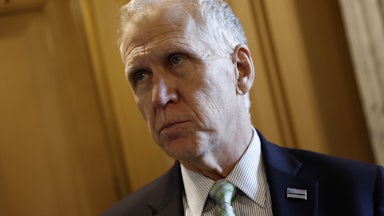Within 48 hours of deciding to flee Russia, writer Maxim Osipov and his wife were in a Moscow airport. “I knew it should have been a sentimental moment,” said Osipov of crossing the Russian border and taking his seat on a plane bound for Armenia, a small country in the Southern Caucasus. “But it was like I was dead and observing the afterlife. I was more curious than sentimental.”
Tens of thousands of Russians have left the country since President Vladimir Putin announced the beginning of the invasion of Ukraine. Some of those who headed for the exits in this unprecedented exodus feared the mass repression that was to come; others worried about the possibility of conscription into Russia’s forces, or the possibility that the borders could be closed. Almost all who have sought a haven away from their homes are horrified by the bloody violence in Ukraine and the ever-darkening political mood in Moscow.
On arriving in the Armenian capital of Yerevan, which has lately been in the grip of unseasonal blizzards and subzero temperatures, Osipov said he felt “cold, ashamed, and free”—a reference to a quote about emigration from German writer Sebastian Haffner, who escaped Nazi Germany in the late 1930s. “I am ashamed of Russia,” said Osipov, who lived in the picturesque town of Tarusa, just outside Moscow. “I’m ashamed of myself for not staying in Tarusa. I am ashamed because friends were unable to leave because of their elderly parents, or for other reasons. And, of course, I am ashamed to be Russian because of what we are doing in Ukraine.”
The influx of Russians is hard to miss in Yerevan, which is home to about a million people and known as the “pink city” because of the widely used rose-colored tufa stone. Most of the arriving Russians are from the country’s beleaguered middle class, and groups of lost-looking Muscovites are a common—and incongruous—sight on Armenian streets. Spoken Russian is now far more common in Yerevan than it was before the war, skyrocketing real estate prices have led to a flood of evictions, and there are long lines at banks.
Russians do not need a visa to enter Armenia, and the country’s Soviet heritage means most locals speak Russian, making it an attractive destination. Other post-Soviet capitals have also seen notable inflows of Russians in recent weeks, including Tbilisi in neighboring Georgia, and Bishkek in the Central Asian nation of Kyrgyzstan. The Turkish capital, Istanbul, and cities in the Baltic states also have rapidly growing Russian émigré communities. Some estimates put the total exodus in the last month at up to 250,000 people.
Many of those arriving from Russia are in a state of shock, communicating obsessively with friends and family and trying to understand what to do next—even going so far as to look to history for clues on what’s to come. “Everyone is reading Karl Jaspers on collective guilt, Hannah Arendt on the banality of evil, and Jonathan Little’s Kindly Ones,” said a museum curator from Moscow who flew to Yerevan with her boyfriend and requested anonymity to speak freely. “I haven’t made up my mind, but in terms of feelings I can say there is more pain than shame. I have so much pain for Ukraine.”
Even abroad, many Russians are still afraid of speaking freely—particularly if they hope to return. A law on “fake news” signed by Putin earlier this month includes jail sentences of up to 15 years, and many believe it could be used to unleash a new wave of repression. Several Russians declined to give an interview for this article, and the museum curator said she had deleted her anti-war Facebook posts. “A person has a limited quantity of mental strength, and at the moment part of this strength has been stolen by fear,” she said.
While most new arrivals are concentrated in Yerevan, Russians have also been heading to other destinations across Armenia, including the “northern capital” of Gyumri and the mountainous spa town of Dilijan. Many are intent on setting up a new home, while others are planning to move on to Europe or even further afield.
Maria Maiofis and her husband, Ilya Kukulin, both prominent academics, pulled their 17-year-old daughter out of school and bought three tickets to Yerevan eight days after the outbreak of war. Over coffee in Yerevan, they said that they couldn’t stay silent and didn’t want to go prison for protesting—so their only option was to leave.
Along with their dog, they had to change airports in Moscow after their flight was canceled at the last minute. When their plane was briefly held on the runway before takeoff, their daughter had a panic attack. “The three weeks we have been here [in Yerevan], I feel like I have been picking up the pieces,” said Maiofis. The couple added that they want to find jobs in a “free country,” but they will stay in Armenia for a few months.
While those fleeing generally have similar political convictions, they come from a variety of different jobs and industries. The exodus includes most of Russia’s remaining independent journalists—nervous about the new law on “fake news”—and a large part of the I.T. sector. As many as 100,000 I.T. specialists could leave Russia in April, according to the Russian Association of Electronic Communications. Privately owned Russian internet giant Yandex has said it is looking to rent a new office in Yerevan.
The loss of hundreds of thousands of highly educated men and women is likely to have a long-term economic impact on Russia, but these emigrants also represent some of the country’s most active anti-regime opposition. The consequences of this mass evacuation on both the current anti-war movement and the future opposition to the Kremlin are different to gauge—but look to be significant.
On a recent Sunday in Yerevan, several hundred Russians, Armenians, and Ukrainians gathered in a snowstorm for an anti-war march through the city center. As the demonstrators waved Ukrainian flags and chanted, “Putin is a murderer!” “No to war!” and “Glory to Ukraine!” bemused Armenian onlookers leaned out of windows and took videos on their phone. Academics Maiofis and Kukulin said attending a political rally without fearing arrest was a new—and cathartic—experience.
Opinion seems to be divided among emigrant Russians about if—and when—they will be able to return. “I definitely want to go back,” said the museum curator. “It should be possible to return when the rules of the game become clear again. At the moment, they are changing every day and it’s not clear what you can do and what you can’t. You need to be able to understand what the consequences of your actions will be.”
But others were less sure. “I said to my whole family that if you want a real life, not something fake, you need to think that it’s forever,” said 58-year-old writer Osipov. “Otherwise you’ll end up like those aristocrats in Paris in 1919, saying, ‘These Bolshevik gangsters need to go and the Romanovs come back.’ You could end up waiting for 70 years. Of course, I hope we can go back. But I should act as if it is forever.”
Some of the divergence in approach stems from age and experience. Those like Osipov, Maiofis, and Kukulin lived through the collapse of communism; their careers have embodied a hope that Russia could become a stable, European democracy. “There is a realization for me and my generation that we lost—that we are losers. We felt like we had won in the 1990s. But our victory has been taken from us. It’s like we’re being asked to get back into dirty bathwater that is full of hair,” said Osipov.
After several weeks in Yerevan, Osipov flew to Frankfurt, Germany, to stay with his daughter, a musician. Organizing his family’s evacuation had kept him busy, but when we spoke via Zoom, he said he feared the frenetic activity would soon come to an end. “The depression will follow,” he said. He added that he had started dreaming of his house in Tarusa—something that he had never done before.
In a similar way to Osipov, academics Maiofis and Kukulin do not believe that they will be able to go back to Russia anytime soon, and they are making plans for a new life. “The only thing left from our vanquished liberal, free society is people,” said Kukulin. “I hope that, in 10 years, the regime will collapse. Everything will be in total ruins—definitely institutionally and possibly also physically. No economy, no education, nothing. It will be necessary to construct everything again from these ruins, and it’s very important that there are people who will be able to rebuild. I say to my students that while I might not live to see such a moment, they need to keep this in their minds.”










